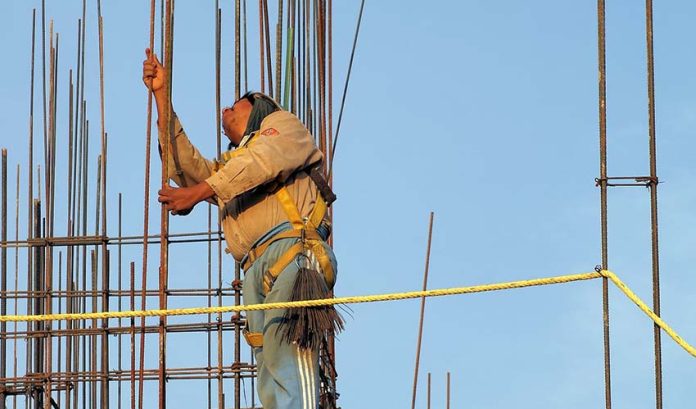If you work hard and do a good job, it’s simply inevitable: you’ll be met with enough financial success for a comfortable, middle-class life that will be yours to enjoy for as long as you like. If you’re a motivated and clever go-getter on top of that, the sky’s the limit!
This has long been the common wisdom in traditionally prosperous countries, at least among those who grew up watching their families and peers prosper. I’ve seen the belief here in Mexico as well — though, again, mostly among those who have grown up in well-to-do enclaves.
Poorer recruits of this assertion do sometimes appear, from which there are typically two offshoots: they either realize that it’s not really true for most people (conclusions often made much later in life) or, depressingly, their disappointment is turned inward at their inability to be “worthy” or “good enough” to reach their goals.
This assumption here, of course, is that the market and the economic system are inherently fair. To proponents of this system, both the economy and the meritocracy exist in a vacuum, unaffected by power, politics and generational wealth.
Perhaps the social media algorithm gods are sending me more of what gets my attention (it’s likely), but I’ve been noticing lately a lot of pushback against “hustle” culture. The message is not “work as hard as you can until you make it,” but “don’t give your life to your work; your work doesn’t care about you, and it doesn’t deserve the best of you.”
From quiet quitting — which, upon reading the definition, is not quitting at all but simply doing only what you were hired to do, which seems perfectly reasonable to me — to the insistence on mental health days and remote-work options, workers seem to be getting better about setting limits with their jobs and the duties and hours expected of them (which happens to be another prominent theme in my custom-made-for-me social media feeds).
This is refreshing. It’s also an attitude that I think Mexican culture naturally has “baked in” to a greater degree than other places.
How could it not? So many jobs here pay so little, and the six-day Mexican work week is one of the longest in the world. Most people only survive on such low pay because they live with their families, which serve as extended networks of support. In the absence of much of a government safety net for all but the very poor, one’s family becomes that safety net.
If you don’t have that extended network of support – hey, not all families offer the comfort and protection they’re meant to, plus some of us are foreigners without families here – then it becomes necessary to support oneself alone, an increasingly difficult and stressful task in the face of rising inflation and costs. And while prices are very obviously rising, most people’s pay is not.
A recent article talked about how the Senate will be considering a law that would double the vacation leave per year that workers are entitled to. I certainly hope it passes, although I already feel sad about how much effect it won’t have on average workers.
Over 50% of workers in Mexico work in the informal economy (read: do not have the labor protections and rights given to “formal” workers); in my home state of Veracruz, that figure is closer to 70%. While any news in favor of fairer labor conditions is good news, the law fails to touch the majority of workers here.
Schedules are famously punishing for workers in Mexico, and jobs, at least as long as I’ve been here, have been scarce enough that most people feel they have no choice but to hold on for dear life to any job they’re offered.
Even so, Mexico has some good labor laws on the books. While the minimum wage certainly doesn’t meet its constitutional promise to provide for a family of four’s basic needs, at least there is a minimum wage, and one of President Lopez Obrador’s accomplishments has been getting it raised during his presidency. And maternity leave is a right in Mexico (unlike in certain countries to the north). Also, vacation days and Christmas bonuses are the law.
Unfortunately, the only way one can get all these goodies is by snagging a formal job in the formal job market as an official worker. And even then, companies that operate in Mexico are increasingly finding that they can get away with saving vast amounts of money by classifying workers as independent contractors so that they don’t have to give them any kind of benefits or seniority. Guess how many people I know who are “fired and rehired” every year so they don’t accrue seniority and the benefits that come with it: it’s in the double digits!
So while I applaud any law that increases workers’ protections, rights, and pay, I feel for the vast amount of workers being left behind…especially when there’s a vocal chorus of people shouting, “If you can dream it, you can achieve it!”
There’s obviously more required than dreams. There’s also more required than hard work, drive and sacrifice.
We’re all trying hard. But so little is actually up to us. “Anyone” (in theory) can make it, it’s true, but the economic and social system within which one lives and works will always demonstrate whether or not everyone can make it at the same time.
Sarah DeVries is a writer and translator based in Xalapa, Veracruz. She can be reached through her website, sdevrieswritingandtranslating.com
